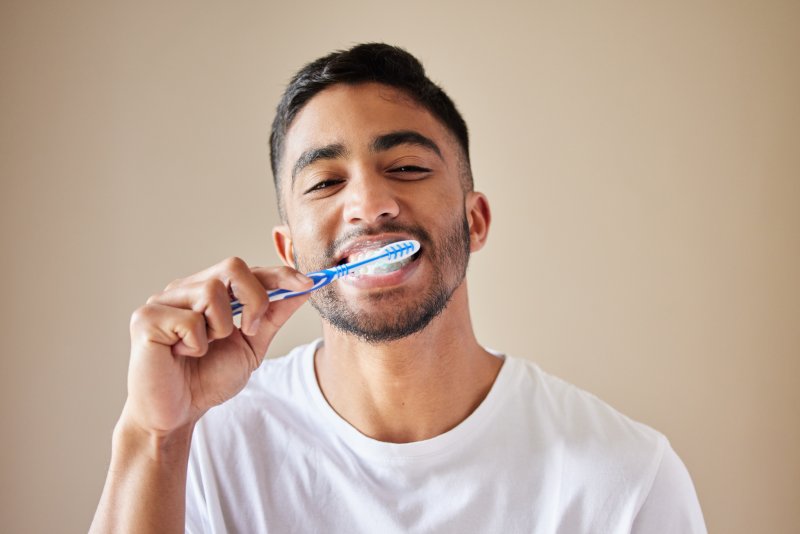
Given your dentist in Lincoln and their constant emphasis, you may think there’s no such thing as brushing teeth too hard. After all, how could diligence toward good oral health be a bad thing? However, the fact is that overbrushing is both possible and harmful to your smile. Good toothbrushing relies less on force and more on technique. To learn more, here’s a summary of overbrushing’s signs, negative health effects, and how to prevent it with proper brushing practice.
Signs You’re Brushing Too Hard
Before anything else, you’ll want to know if you yourself are an over-brusher. Find out by seeing if the below over-brushing symptoms apply to you:
- Exposed Tooth Roots: Vigorous brushing can expose the sensitive tooth root area. Said exposure can make your teeth sensitive to stimuli –temperatures, etc.
- Gum Recession: Due to applying excess pressure, overbrushing can cause your gums to recede over time. Sometimes, this can make your teeth seem overly long and odd-looking.
- Toothbrush Lasts Less Than 3 Months: A toothbrush less than three months old should still look relatively new. If it instead looks beaten and flat, you may be brushing too hard.
How Does Overbrushing Damage Your Smile?
Firstly, overbrushing can wear down tooth enamel. Because plaque is soft and quickly wiped away, using your toothbrush too forcefully can wear at your teeth’s protective layer along with the bacteria.
Secondly, this “toothbrush abrasion” can damage your gum tissue. Doing so elevates your risk for gum disease and cavities on your tooth roots. Left unchecked, this gum recession may even lead you to need fillings, root canals, and tooth extraction.
The Solution? Right Brushing!
Brushing your teeth well is about following the right methods, not how hard you scrub. From now on, follow these steps when you clean your teeth:
- Use a soft-bristled toothbrush to prevent gum damage and wear on the dentin (the less mineralized layer of tooth found just under the enamel) and root.
- Place your toothbrush’s head with the bristles’ tips at a 45-degree-angle to the gumline when brushing.
- Move the toothbrush with short strokes and a scrubbing motion, several times in each spot – don’t saw back and forth across the teeth with your toothbrush.
- Apply just enough pressure to feel the bristles against the gums. If you are squashing them, you’re brushing too hard.
It’s great to be dedicated to cleaning your teeth and gums, but don’t let that lead to overbrushing. Remember the signs and tips above, so your future oral care leads to an even better smile.
About the Practice
Olberding Dental is one of the top dental practices in Lincoln, Nebraska. It’s currently led by Dr. Louis Olberding, who earned his DDS from the University of Nebraska’s Medical Center College of Dentistry. He and the rest of the staff offer excellent dental care to all their patients through continuing education. Their services include preventive, cosmetic, and restorative dentistry. For more information or to book an appointment, reach them at their website or by phone at (402)-488-2325.
